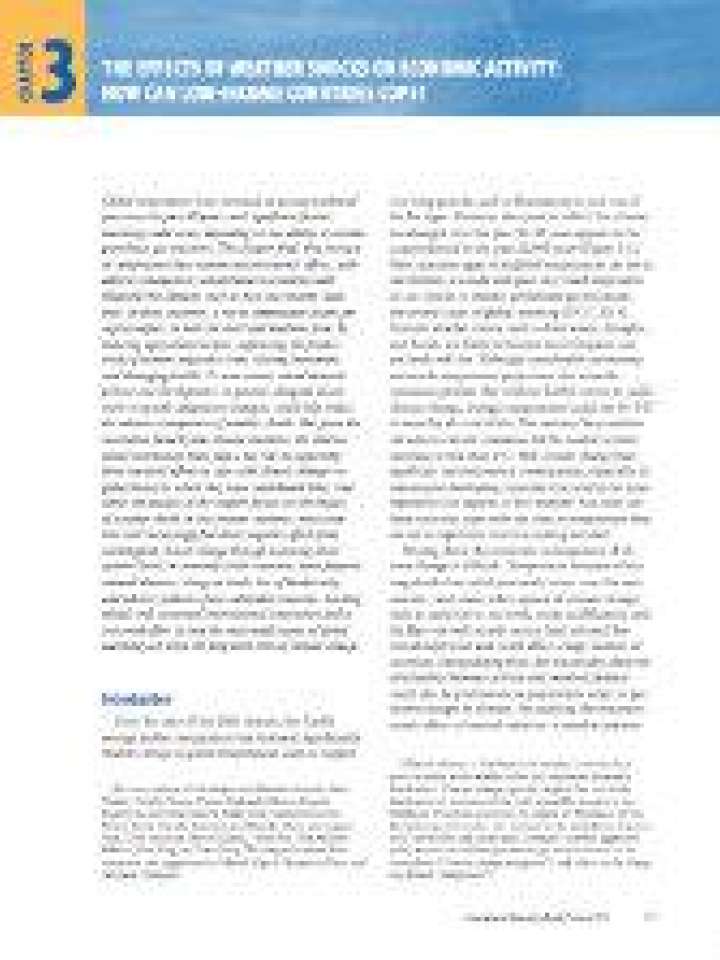The effects of weather shocks on economic activity: How can low-income countries cope?
This chapter finds that increases in temperature have uneven macroeconomic effects, with adverse consequences concentrated in countries with relatively hot climates, such as most low-income countries. In these countries, a rise in temperature lowers per capita output, in both the short and medium term, by reducing agricultural output, suppressing the productivity of workers exposed to heat, slowing investment, and damaging health.
To some extent, sound domestic policies and development, in general, alongside investment in specific adaptation strategies, could help reduce the adverse consequences of weather shocks. But given the constraints faced by low-income countries, the international community must play a key role in supporting these countries’ efforts to cope with climate change—a global threat to which they have contributed little. And while the analysis of the chapter focuses on the impact of weather shocks in low-income countries, most countries will increasingly feel direct negative effects from unmitigated climate change through warming above optimal levels in currently cooler countries, more frequent natural disasters, rising sea levels, loss of biodiversity, and adverse spillovers from vulnerable countries. Looking ahead, only continued international cooperation and a concerted effort to stem the man-made causes of global warming can limit the long-term risks of climate change.
This chapter is the third chapter in the World Economic Outlook: Seeking Sustainable Growth--Short-term Recovery, Long-term Challenges published by the International Monetary Fund in October 2017.
Explore further
